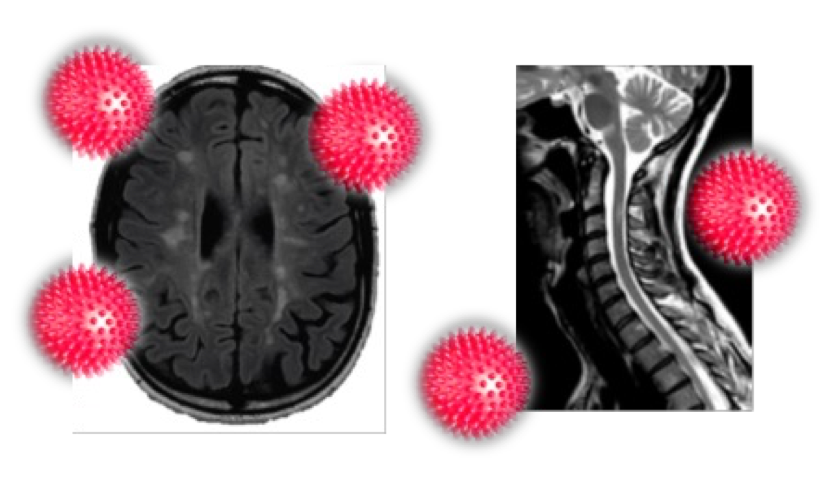DOES MULTIPLE SCLEROSIS (MS) ALTER THE RISK OF DEVELOPING A SEVERE FORM OF COVID-19 INFECTION? WHAT ARE THE CLINICAL FEATURES AND EFFECTS OF CORONAVIRUS INFECTION IN PATIENTS WITH MS? DO SPECIFIC TREATMENTS FOR SEPSIS INCREASE OR DECREASE THE SEVERITY OF THE VIRAL INFECTION?
At the Paris Brain Institute, a study coordinated by Dr Céline LOUAPRE, neurologist (AP-HP.Sorbonne University), referent doctor of the Clinical Investigation Centre (CIC) and researcher in the team of Profs LUBETZKI and STANKOFF has made it possible to answer these questions.
The COVISEP register is based on a cohort of patients from all the expert centres and neurologists who follow MS patients in France. The retrospective and observational study, coordinated by Dr LOUAPRE, which was published in the scientific journal JAMA Neurology, involved 347 multiple sclerosis patients infected with COVID-19 between 1 March and 21 May 2020.
The severity of COVID-19 was assessed on a scale ranging from 1 (no hospitalisation, no activity limitation) to 7 (death).
Of the 347 patients included in the study, 284 were receiving immunomodulatory or immunosuppressive therapy for their MS. The rate of patients hospitalised due to COVID-19 was 21%, and the rate of COVID-19-related deaths was 3.5%, slightly higher than expected for a population with an average age of 44 years.
The results of this study show that the risk factors for COVID-19 severity (requiring at least hospitalisation) are EDSS score (a scale reflecting the severity of neurological disability), age and obesity. In contrast, immunomodulatory or immunosuppressive treatments were not associated with an increase in the severity of COVID-19.
These results now make it possible to better adapt the clinical management of multiple sclerosis patients presenting one of the risk factors identified in the case of COVID-19 contamination.
Source : Clinical Characteristics and Outcomes in Patients With Coronavirus Disease 2019 and Multiple Sclerosis Céline LOUAPRE et al.
PMID: 32589189 DOI: 10.1001/jamaneurol.2020.2581







